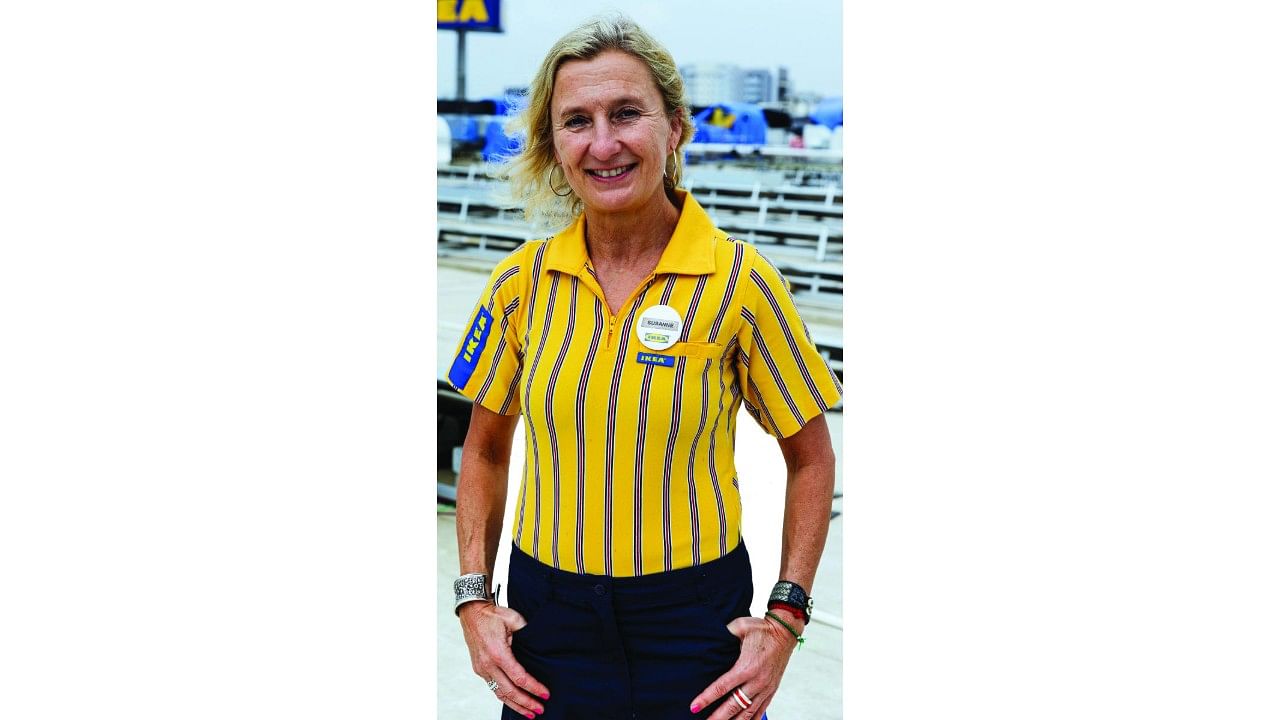
On International Women’s Day, DH brings you the first of its special series of stories on where India stands on diversity. Susanne Pulverer, the first woman to helm the Indian arm of Swedish home furnishings chain IKEA, tells DH’s Reshab Shaw how she plans to boost gender parity and what she will focus on in her early days as the chief executive officer. Edited excerpts:
What are the key challenges that women face in the corporate world?
There could be challenges with work hours, flexibility, work-life balance, or simply in identifying the right opportunities. There can also be social pressures from families and society as women tend to prioritise household responsibilities, especially after marriage or childbirth, making it difficult for them to come back to work. To enable more women to remain in the workforce, grow into leadership positions, it is important for organisations to create opportunities for women and men. Sometimes we need to make special efforts for women to be able to thrive. At IKEA, we believe that gender equality is positive for our co-workers, our business, and our world. We have set ourselves a goal to have a 50-50 gender balance across all levels of the company and not only in leadership positions.
Has the participation of women increased in the workforce?
Unfortunately, the increase in women's participation in the total workforce is not balanced compared to men. It needs to be much more. Although we can see more and more women, especially the younger ones coming out and working, the important thing is to be able to create a positive, safe, and empathetic work environment supported with good workplace policies for them to be able to stay in their jobs and thrive. At IKEA today we have around 45% women across the organization although the ambition is to be 50%.
Has there been an increase in women holding key roles?
There needs to be more representation of women leadership in most companies, not only in India but around the world. In IKEA India, currently around 60 percent of our senior leaders and close to 45% of our co-workers are women. Some of the roles that are usually held by men are led by our female leaders. Our logistics manager is also a woman.
What can we do to achieve gender parity in India?
Workplace policies that empower women, enabling dignity and respect, support groups to promote wellbeing and encouragement, flexible parental leave policies, safety at workplace and even practical initiatives like transporting, day care for babies, flexible work hours are all going to play a role. The government has a big role to play, and India has made positive steps when it comes to maternity benefits etc in the past years. Most importantly, it is the mindset shift that women are equally talented and can contribute just like men will help us break stereotypes and move closer to a more equal world. We need to keep moving and see all the opportunities in front of us.
What is being done to address gender diversity at IKEA?
Equality, diversity and inclusion are at the heart of IKEA’s business. Our commitment to 50% women across all levels in the organisation is non-negotiable. Our goal is to create an inclusive culture where everyone is valued for their unique contribution, and where they can be themselves. IKEA’s diversity and inclusion approach are integrated into its business plans and HR practices such as benefits, recruitment, succession, learning and development. We aim to achieve gender equal pay for work of equal value in the coming years. In India we offer six months parental leave for both women and men, provided the spouse is going back to work, enabling women to remain in the workforce and help increase equality at home.
What are your early goals as the CEO of IKEA India?
My focus in the first few months is to spend time understanding the business, listening to my leadership team and coworkers, visiting our units in Hyderabad, Mumbai, Pune, Bengaluru, Delhi NCR and the people.
As a leader, I would like to be able to create a clear vision and roadmap to build on the already strong foundation created by the team and work together on one holistic growth plan.
Check out the latest videos from DH: